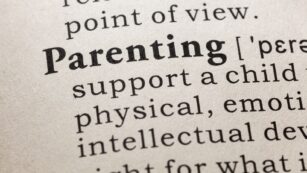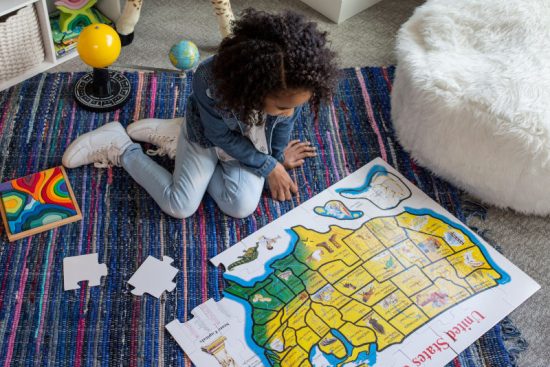
Parenting is an incredible journey that unfolds in distinct stages, each bringing its own set of challenges and joys. From the sleepless nights of infancy to the emotional rollercoaster of adolescence, every phase requires a unique approach and a fresh set of skills. Understanding these stages can help parents navigate the complexities of raising children with confidence and grace.
Stages of Parenting
Understanding the various stages of parenting aids in navigating the complex journey of child-rearing seamlessly. Each phase has unique aspects and needs specific strategies.
The Importance of Recognizing Different Stages
 Recognizing different stages helps parents prepare for upcoming changes. It enables setting realistic expectations and provides tools critical for addressing behavioral and developmental needs. Identifying these stages also reinforces the parent-child bond by encouraging appropriate emotional connections and support.
Recognizing different stages helps parents prepare for upcoming changes. It enables setting realistic expectations and provides tools critical for addressing behavioral and developmental needs. Identifying these stages also reinforces the parent-child bond by encouraging appropriate emotional connections and support.
-
Lack of sleep: Parents often struggle with sleep deprivation, especially during infancy.
-
Behavior management: Establishing rules and discipline is critical from toddlerhood to adolescence.
-
Balancing responsibilities: Juggling work, parenting, and personal time proves challenging regardless of the child’s age.
-
Emotional stress: Anxiety and stress about children’s well-being and future remain constant concerns for parents.
The Early Years: Birth to Toddler
Developing Trust and Security
Developing trust starts with consistent caregiving. When caregivers respond promptly to a baby’s needs, the child feels secure. This security builds a foundation for healthy emotional development. Comfort and reassurance during distress reinforce trust.
Key Milestones and Parental Adjustments
 During the birth to toddler stage, children reach critical milestones. Physical milestones include rolling over, sitting, crawling, and walking. Cognitive milestones involve recognizing faces, responding to sound, and beginning to speak simple words. Emotional milestones include showing attachment to caregivers and expressing a range of emotions.
During the birth to toddler stage, children reach critical milestones. Physical milestones include rolling over, sitting, crawling, and walking. Cognitive milestones involve recognizing faces, responding to sound, and beginning to speak simple words. Emotional milestones include showing attachment to caregivers and expressing a range of emotions.
Parents should adjust to these changes by providing a safe environment for exploration. Baby-proofing homes ensures children’s safety as they learn to move. Encouraging independent play promotes cognitive development. Being patient and supportive during tantrums helps children develop emotional regulation. Developing routines for meals, sleep, and playtime provides structure and security.
The Childhood Years: Ages 4 to 12
Physical Development
Children experience significant growth between ages 4 and 12. Height and weight steadily increase, and fine motor skills improve. Participation in physical activities like sports, dance, and play strengthens muscles. Regular health check-ups and balanced nutrition support optimal development.
Cognitive Development
Cognitive abilities expand markedly during these years. Reading, writing, and math skills develop rapidly. Problem-solving and logical thinking become more sophisticated. Encouraging hobbies, like puzzles and games, can enhance these cognitive skills. Quality education, both formal and informal, plays a crucial role.
Emotional and Social Growth
Emotional regulation and social interactions evolve significantly. Friendships become more complex, and peer influence grows. Teaching empathy, conflict resolution, and communication skills help children navigate social relationships. Organized group activities aid in developing teamwork and cooperation.
Independence and Responsibility
Children seek greater independence in this stage. Allowing them to make choices within set boundaries fosters confidence. Assigning age-appropriate chores and responsibilities encourages accountability. Guiding them in managing time and resources builds essential life skills.
Academic Engagement
School performance often becomes a primary focus. Staying engaged with their schoolwork and progress is crucial. Communicating with teachers and attending school events show support. Establishing a structured homework routine aids in maintaining academic discipline.
Family Dynamics
 Family relationships play an essential role. Quality family time, such as shared meals and activities, strengthens bonds. Creating a supportive and open environment encourages children to express their thoughts and feelings. Consistent parental involvement nurtures a sense of security.
Family relationships play an essential role. Quality family time, such as shared meals and activities, strengthens bonds. Creating a supportive and open environment encourages children to express their thoughts and feelings. Consistent parental involvement nurtures a sense of security.
Setting clear behavioral expectations and consequences is key. Positive reinforcement for good behavior motivates children. Consistent discipline strategies, like time-outs or loss of privileges, address misbehavior. Teaching respect and understanding household rules fosters a harmonious environment.
Health and Safety
Ensuring health and safety remains a priority. Regular physical activity, proper hygiene, and a nutritious diet contribute to overall well-being. Educating children about personal safety, such as road safety and online security, protects them from potential risks. Frequent dental and vision check-ups are crucial.
Technological Influence
Technology becomes more integrated into children’s lives. Monitoring screen time and content is essential. Encourage educational apps and programs that promote learning. Setting limits on device usage ensures a balanced lifestyle.




